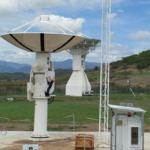
The new stations will join the ten uplink stations that Indra has already put into service and six others currently in development from a previous contract.
The Uplink Stations provide satellites with messages containing navigation data generated after verifying their onboard clocks and orbital positioning, which could be affected by solar winds or the gravitational fields of the Earth or Moon.
Satellites can use these messages to send precise data to the growing number of mobile devices and positioning systems used by companies and individuals. A deviation in the data sent by merely one billionth of a second would amount to a positioning error of 30 cm on Earth. The data messages that these stations send therefore have a vital role in achieving the precision of the entire system.
In addition to deploying the entire ULS network, Indra has also implemented the Telemetry, Tracking and Control (TT&C) stations. These stations are distributed around the globe to ensure that satellites remain in permanent contact with at least one at all times for monitoring their positions and sending control orders. Indra engineers have implemented them in places such as Kourou (French Guiana), Kiruna (Sweden), Nouméa (New Caledonia), Réunion Island (overseas department of France), Svalbard (Norway) and Papeete (French Polynesia).
Galileo provides critical services that depend on the perfect operation of this system, including search and rescue, which was one of the first services activated when the system was commissioned back in December 2016. Additional capabilities have gradually been included to address situations related to emergency and crisis response and management, shipping, navigation, construction, etc.
